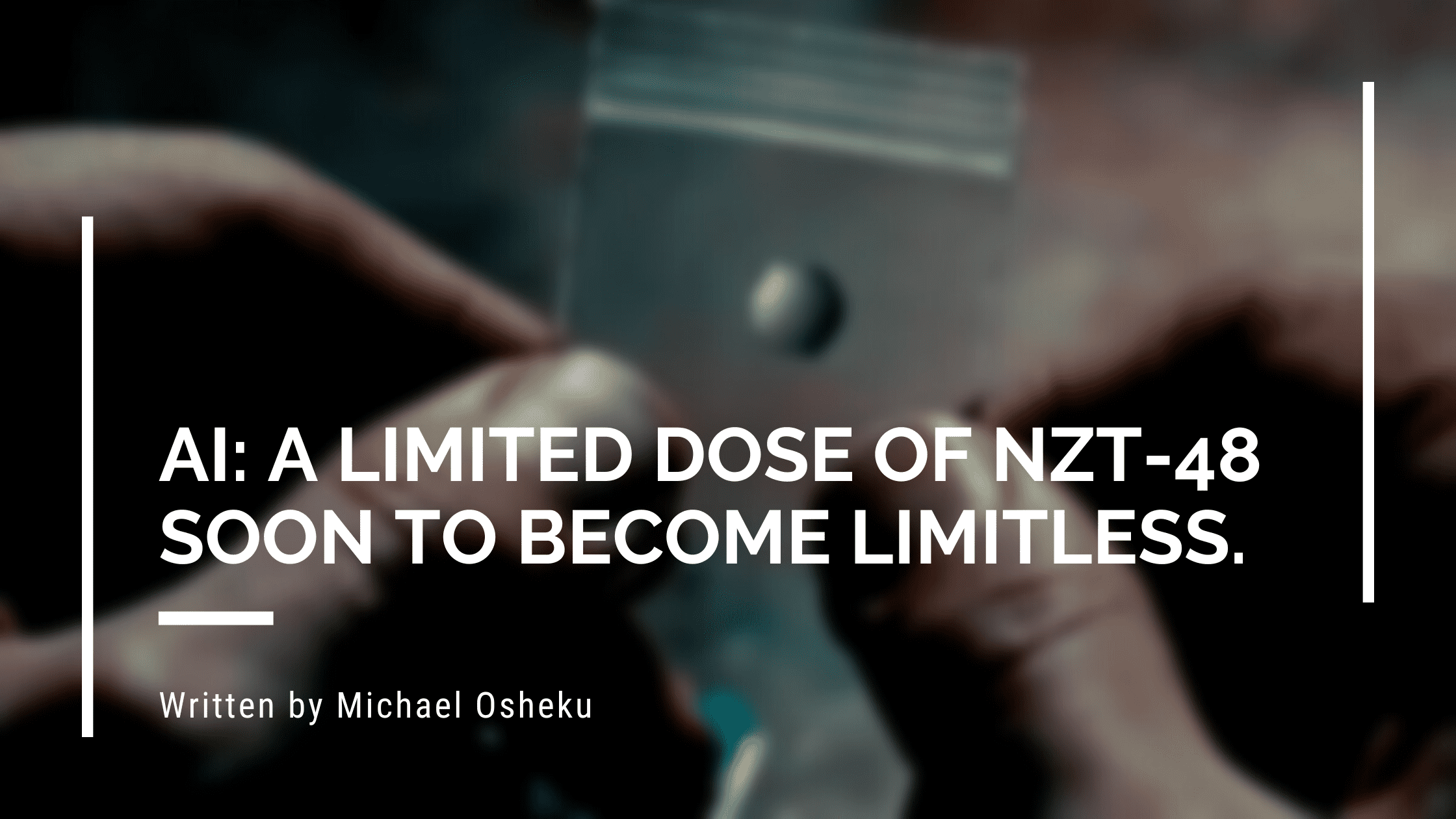
AI: A Limited Dose of NZT-48 Soon to Become Limitless.
I recall watching the movie “Limitless” with my friend Chinemerum for the first time after searching a popular video streaming platform for over 30 minutes to find the perfect film to watch to unwind for the day. We were both astounded by the power of the fictional drug NZT-48, which unlocked the full potential of the human brain, allowing the main character to learn and retain information at an incredible rate.
For those who have not seen it, “Limitless” is a 2011 science fiction thriller film directed by Neil Burger and starring Bradley Cooper, Robert De Niro, and Abbie Cornish. Eddie Morra, played by Bradley Cooper, is a struggling writer who discovers a new drug called NZT-48. This drug gives him full access to his brain’s capabilities, allowing him to learn and retain information at an incredible rate, as well as having perfect recall and increased creativity.
Eddie experiences both positive and negative effects as he becomes more dependent on the drug, including improved focus and problem-solving abilities, as well as paranoia and addiction. As he achieves success in his career and personal life, he attracts the attention of dangerous people.
I have been wondering what it would be like if my brain could function like that since I saw the movie. The idea of a pill that unlocks the human brain’s full potential is appealing. But what if NZT-48 had a real-world equivalent? What if there was a way to improve human abilities without using a fictitious drug? It turns out that artificial intelligence (AI) could be the solution.
Artificial intelligence has become a significant topic of discussion and has made significant advances in recent years, with its use in enhancing human abilities being a hotly debated topic.
Artificial intelligence, or AI, is already changing the way we live and work. AI is transforming multiple industries, from voice assistants like Siri and Alexa to self-driving cars and advanced medical diagnostic tools. However, its potential extends beyond what we have seen thus far.
Consider a world in which we can use AI to boost human abilities beyond their natural limits. A world in which we can access and use every part of our brain to its full potential. This may appear to be science fiction, but it is closer to reality than you think.
AI can assist us in reaching new levels of productivity, creativity, and efficiency. It can assist us in processing massive amounts of data and making more informed decisions. It can even help us improve our physical abilities, such as sports performance or injury recovery.
However, as with any technological advancement, there are ethical implications to consider. What happens when we use artificial intelligence to improve our cognitive abilities beyond what is currently possible? How can we ensure that AI is regulated and used in ways that benefit society and the world as a whole?
Concerns have also been raised about the potential loss of human skills and intuition. As we become more reliant on AI, we may become less reliant on our own abilities, potentially leading to a decline in creativity and emotional intelligence.
The parallel with NZT-48 is intriguing, and while AI may not be a magic pill, it certainly has the potential to become something close to it. Imagine being able to learn new skills in minutes, solve complex problems with ease, and even perform physical feats that are physically impossible. This is not a pipe dream; AI is making it all a reality.
Finally, as we continue to investigate the potential of AI to enhance human abilities, we must proceed with caution. We must ensure that its use is regulated and ethical, while also preserving our human skills and intuition. But, make no mistake, with AI, we are closer than ever to realizing the full potential of the human brain, and it is an exciting time to be alive.
FOLLOW ME
